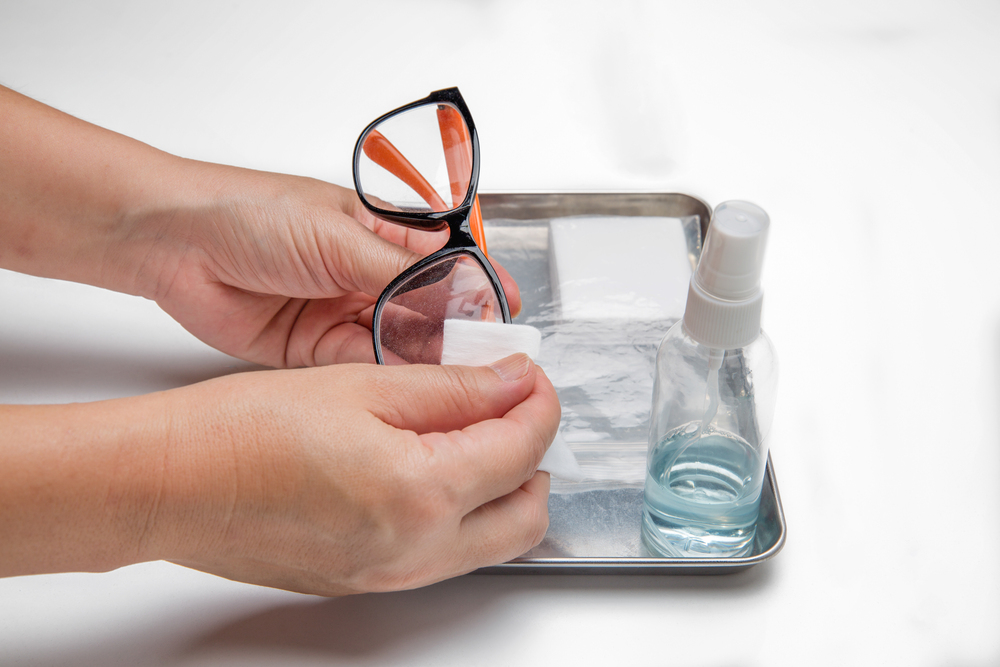Don't miss our holiday offer - up to 50% OFF!
How to Take Care of Your Driving Glasses

Many of us rely on glasses to see things better while driving. But, how often do we think about taking care of our driving glasses?
Why It Matters
It may seem insignificant, but taking care of your driving glasses has a big impact.
Your driving glasses are basically your eyes on the road. It can make a world of difference when they are clean and well looked after.
Proper maintenance of our glasses is more about safety than it is about aesthetics. This can easily be achieved, to ensure that every time you are behind the wheel is the likeliest time for clear vision of the road ahead.
Your driving glasses are basically your eyes on the road. When they’re clean and well-maintained, you can react faster to sudden changes, read signs easier, and avoid eye strain on long trips.
Glasses maintenance is more about keeping you and others safe than it is about aesthetics. With just a little effort, you can ensure that every time you get behind the wheel, you’re seeing the road as clearly as possible.
Things That Can Affect Your Driving Glasses

Dirty lenses
Have you ever noticed that the whole world looks brighter, colors look sharper, and everything looks high-definition when your lenses are squeaky clean? And everything looks rather dull when your glasses are dirty.
Your glasses accumulate smudges, dust, and dirt quickly. And that interferes with your vision. Every time you touch a lens or adjust your glasses, you leave a bit of oil from your skin. And floating atmospheric particles of dust and pollen also settle on your lenses.
Dirt creates a film over the lenses, an effect you may not notice at first. But light refract off the dirty spots and reduce clarity.
Scratches
Even the littlest scratches, invisible to the naked eye, can have an effect on the quality of vision. These generally occur when you clean lenses with tissues or clothes. Or when glasses are dropped on hard surfaces, and stored improperly without a protective case.
If a light ray hits a scratch, it reflects in unpredictable directions. This scattering effect may manifest as annoying reflections. Your lenses may have a foggy appearance because of multiple minor scratches.
Frames
The frames of the driving glasses will also perform an important role in how well you see. Over time, the screws in your glasses loosens. This causes the frame to sit differently on your face.
Bent frames may bring one lens closer to your eye than the other. This causes double vision or depth perception distortion, which is important in assessing distances, when driving.
Regular cleaning, proper handling, and timely repairs ensure that your glasses continue to provide clear, safe vision on the road.
Lens Care 101
Cleaning Dos:
- Rinse first: Start by running your lenses under lukewarm water. This removes dust and grit that may scratch your lenses if you rub them dry.
- Use the right cleaner: You can get a special lens cleaning solution for your glasses. It can come in the form of a spray, or wipes. A tiny drop of mild dish soap works just as well, if not better. Just avoid harsh chemicals like lime, lemon and other acids– they can damage your lens coatings.
- Use a gentle touch: Use your fingertips to gently spread the cleaning solution. Don’t press too hard!
- Rinse again: Make sure all the soap is gone.
- Dry with care: Use a clean, lint-free cloth to wipe off water droplets from the lens. It’s best to use microfiber cloths that are specially made for glasses.
Cleaning Don’ts:
- Don’t use your shirt, tissue, or paper towels to wipe your lenses. They can leave scratches.
- Do not clean your lenses by spitting on them. It’s not hygienic and will leave smears.
- Don’t clean dry lenses. Always wet them first to avoid scratching.
- Don’t use hot water on your glasses. Lens coatings cannot stand the thermic shock that is created by the hot water.
Keeping a Cleaning Kit

It’s smart to keep a small cleaning kit in your car. It should have:
- A microfiber cloth
- Lens cleaning spray (or pre-moistened wipes made for glasses)
- A case to protect your glasses when you’re not wearing them
Safe Storage and Handling
Be sure to store your glasses in their case when not in use. A hard case is highly recommended to protect the glasses from scratches and accidental crushing.
Never leave glasses on your dashboard or in a hot car. Excess heat can deform the frame, and deteriorate the lens coating.
Handle your glasses using the bridge when you’re wiping them, or with both hands on either temple when sliding them on. This reduces stress to either side of the frame, and keeps it aligned. It also helps to keep your lenses smudge-free.
How to Deal with Fog
Foggy lenses are quite dangerous while driving. It happens when warm air makes contact with cold lenses, or when atmospheric humidity is high.
To prevent fogging, use anti-fog wipes or sprays. Anti-fog products lower the surface tension on your lenses. This makes water spread out in a thin, clear layer instead of forming little droplets that scatter light and blur your vision.
Some solutions last only for a few days while others can be used more frequently.
You should also adjust your car air vents so they are pointed away from your face to avoid fogging.
How to Know When It’s Time for New Glasses
Even with great care, driving glasses don’t last forever.
Many driving glasses come with special coatings to improve vision and protect the lenses. However, these coatings can deteriorate over time:
- Anti-reflective coatings reduce glare, but can peel or wear off, creating distracting spots in your vision.
- Scratch-resistant coatings protect against minor scratches, but they can eventually wear down, making lenses more vulnerable to damage.
- Tinted or polarized coatings often fade unevenly. This affects their ability to reduce glare or to filter light.
Here are signs it might be time for new ones.
- You are squinting or straining to see clearly.
- You get headaches after driving.
- It is evident that your glasses have scratches or are damaged.
Read Also: What are Night Driving Glasses
